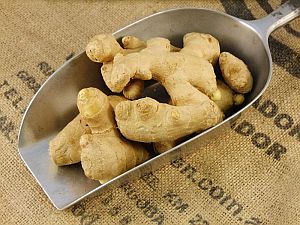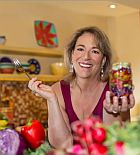Puerto Vallarta, Mexico - Science has confirmed the dangers of non-steroidal anti-inflammatories (NSAIDS) but what are reliable alternatives to treat pain and inflammation that co-occurs with depression and PTSD?
NSAIDS include aspirin, ibuprofen (Advil, Genpril, IBU, Midol, Motrin, Nuprin), diclofenac, and naproxen (Aleve, Midol Extended Relief, Naprelan 375, Naprosyn.) An occasional use of NSAIDS in an acute emergency is not a problem. They only become problematic when they're used regularly.
What's wrong with NSAIDS?
 |
Natural Medicine Alternatives to NSAIDS
An effective approach to pain relief is using several synergistic vitamins, minerals, and herbs along with other therapies that work together to decrease inflammation and provide analgesia. Chronic pain reduction requires dogged, long term self-care but this approach promises success, without the side effects of dangerous medications.
Vitamin D Reduces Pain and Depression
Vitamin D provides essential, cost effective relief for pain and depression that is the most important supplement in your medicine chest. "D" is actually a hormone, not a vitamin. Even though we have a lot of sun exposure here in Puerto Vallarta, we cannot absorb enough to deliver an anti-pain effect. As we age, we do not absorb the effects of the sun via the skin as efficiently. Every year it is important to obtain a Vitamin D blood test and this will help you assess what dose you need. Vitamin D blood levels should be at least 50-80 ng/mL. The higher the better. However, 100 ng.mL is too high. The dose should be anywhere from 2000 units a day to 50,000 units every few weeks until blood levels are sufficient, with maintenance levels between 2-4000 IU a day.
Cook with Fresh Ginger and Turmeric Rhizomes
 |
Turmeric also comes in powdered form and as a fresh root and can be used for cooking. Some people may choose to use capsules or a compounded extract. One way to benefit from the synergistic effects of turmeric and ginger is to obtain both fresh roots and to cut up about a 2 inches worth of each and boil in water for 15 minutes until it's a nice bright orange. Drink 2 cups a day. Piperine, found in black pepper is required for the optimal absorption of curcumin or added to recipes for this reason. Cooking with herbs and spices, especially fresh ginger, turmeric, and rosemary are stimulating to the mood and also anti-inflammatory, but cooking with these herbs alone is generally not enough.
Make Golden Milk
A traditional Ayurvedic beverage is called Golden Milk, named for the rich golden color of turmeric. It can be purchased or made at home. It combines powdered turmeric with spices that lift the mood as they decrease pain.
We are lucky here in Puerto Vallarta to access low cost fresh turmeric in local markets (called curcumina). While almond milk may be purchase commercially there is nothing like fresh almond milk that you make at home, or purchase from our local CSA, Organic Select.
Combine Ingredients:
2 cups of fresh almond or coconut milk
1 tsp if coconut oil (optional)
2 tsp of turmeric powder
¼ tsp of cardamom powder
½ tsp ground cinnamon
½ tsp fresh chopped ginger
¼ tsp of black peppercorns or 1/4th tsp fresh ground pepper
3 drops of vanilla or piece of vanilla bean
6 drops of stevia (optional)
Add all ingredients to a sauce pan and simmer for 5 minutes. Use a frother or whisk to blend well until hot. Sweeten with a few drops of stevia or a little raw honey.
We now know that pain and depression are a function of inflammation in the body. Inflammation is also the major culprit in cognitive decline and dementia. Increasing natural anti-inflammatories in our daily diet is an important path to health.
 Leslie Korn has lived and worked in Banderas Bay since 1973 conducting research in Traditional Medicine of Mexico. She is a Harvard Medical School and Harvard School of Public Health-educated clinician in clinical practice in Mental Health Nutrition, Integrative Medicine and the prevention of dementia and cognitive decline. She is the author of 7 books including the latest, 'The Good Mood Kitchen.' To learn more about her work, visit DrLeslieKorn.com. She can be reached at lekorn(at)cwis.org.
Leslie Korn has lived and worked in Banderas Bay since 1973 conducting research in Traditional Medicine of Mexico. She is a Harvard Medical School and Harvard School of Public Health-educated clinician in clinical practice in Mental Health Nutrition, Integrative Medicine and the prevention of dementia and cognitive decline. She is the author of 7 books including the latest, 'The Good Mood Kitchen.' To learn more about her work, visit DrLeslieKorn.com. She can be reached at lekorn(at)cwis.org.Click HERE to read more articles by Leslie Korn.



